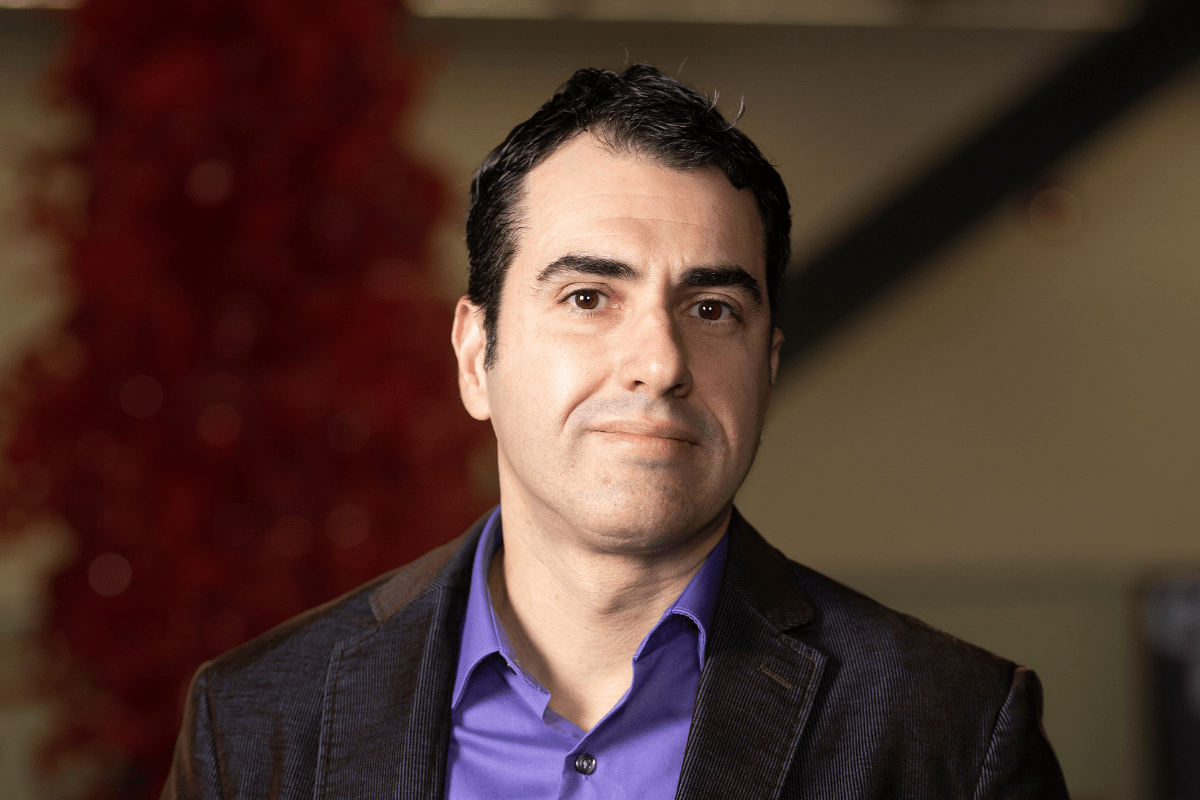UNO’s Dr. Ghersi Among 30 Faculty Selected Nationwide for National Cancer Institute School on Algorithmic Cancer Biology
- published: 2025/09/03
- contact: Yahya Shema - College of Information Science and Technology
- email: yshema@nebraska.edu

Dario Ghersi, Ph.D., associate professor of biomedical informatics and graduate program chair in the College of Information Science and Technology (IS&T) at the University of Nebraska at Omaha (UNO), was selected as one of 30 faculty members nationwide to participate in the National Cancer Institute Spring School on Algorithmic Cancer Biology (SSACB) held Aug. 18-22 at the National Institutes of Health campus in Bethesda, Maryland.
SSACB brought together researchers applying rigorous computational methods to solve various problems in cancer biology, with goals to collaborate, prevent academic silos, and train the next generation of researchers.
This collaborative approach has become increasingly important as advances in tumor sequencing drive the field forward. Tumor sequencing — a laboratory test that reads the genetic code of cancer cells to identify mutations and guide personalized treatment options for patients — has led to several discoveries in cancer research. However, these breakthroughs have also generated massive biological datasets, creating a need for interdisciplinary research teams to develop sophisticated algorithmic methods for data analysis.
SSACB addressed this challenge by serving as a bridge between established faculty and emerging researchers. The program brought together "a small group of participants, including about 30 faculty and a limited group of trainees (postdoctoral fellows and senior graduate students) with diverse backgrounds and expertise."
"SSACB has a mix of research talks and tutorials," Dr. Ghersi said, "which gives SSACB trainees a solid foundation in state-of-the-art algorithmic and computational cancer biology." During the five-day event, Dr. Ghersi presented two sessions. His research presentation, "Form follows function: a novel paradigm of tumor progression," explored new ways of understanding how cancers develop. He also led a tutorial on "Studying cancer dynamics with agent-based modeling."
Ghersi's research group, in partnership with other institutions, is "working to bridge the gap between computational methods and translational applications that can benefit patients," he said. This approach allows researchers to "tackle difficult problems such as advanced cancers and cancers with limited therapeutics."
For more information about the Spring School on Algorithmic Cancer Biology, visit:
https://ncifrederick.cancer.gov/events/conferences/2025-nci-spring-school-algorithmic-cancer-biology